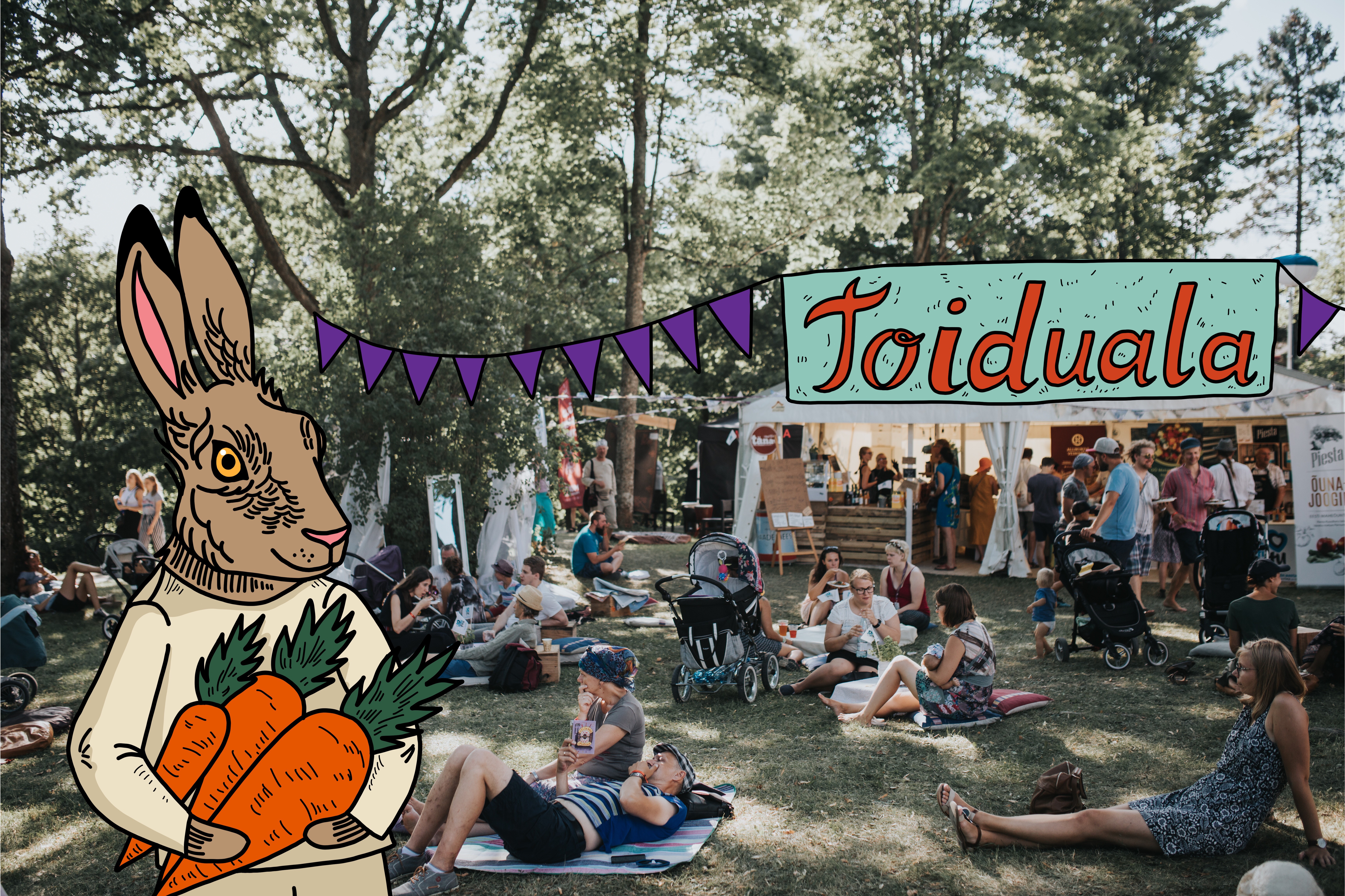Viljandi Folk Music Festival completely gives up single-use plastic dishes and cutlery
One of the biggest music events in Northern countries and Baltics, Viljandi Folk Music Festival taking place on 25th-28th July, is making new efforts to make the festival more environmentally sustainable. Single-use disposable plastic dishes are replaced by compostable, festivalgoers are encouraged to reuse the dishes and the festival is on the course to maximize the sorting and recycling of the waste.

“Viljandi Folk Music Festival has offered memorable concert experiences for decades, both to the audience and artists. To preserve our heritage we have to be respectful and responsible towards our environment - it is the only way to ensure that the heritage will have a place to exist in the future as well, “ says the head of the festival Ando Kiviberg. “Organizing a big event is bound to produce a lot of waste and consequently have a considerable effect on the natural environment. On the other hand, popular events are good places to set a positive example for many people. That’s what we are trying to do in Viljandi and we have found several new solutions to encourage our audience to make environmentally friendlier choices,” adds Kiviberg.
Viljandi Folk Music Festival has therefore decided to completely give up single-use plastic dishes and cutlery in the catering of the team, artists and audience. Every year the festival caters around 25 000 visitors, 300 team members and 500 artists. The alternative for the audience will be compostable dishes, provided by the partner of the festival Vegware. Reusable dishes are planned for the team and artist catering. “We are prepared to provide food in reusable dishes for 400 people, every day of the festival, three times a day,” says the household manager Meeli Liik.
All festivalgoers are encouraged to bring their own reusable dishes and water bottles. The only criterium is that that the plates have to be made of material that doesn’t break easily. “Most of the caterers have promised to give a little discount to the people who have their own plates and cutlery,” says the sales outlet manager Jaana Hinno. Clean tap water is available at the water points, located in several places in the town and the festival area. There will also be a dish rinsing point in the festival area.”
More and more effort is put into waste sorting: organic waste, packagings and mixed municipal waste are collected separately. “Waste sorting is the key because that is the only way how we can recycle packagings and compost organic matter,“ stresses the field maintenance manager Kirsika Meresmaa, “This year we are involving volunteers for the first time to make the sorting as efficient as possible, we’ll have so called “green ambassadors” at the waste collection points who are advising the festivalgoers on waste sorting.”
The festival is co-working with Väätsa Landfill to compost compostable dishes and food waste. The project manager of Väätsa Landfill Toomas Laidmets says that this is the first time of composting a material like this, both for the festival and for the Väätsa Landfill. ”That’s why we can’t give a 100 % promise of what will the final result be and when will it be reay. Nevertheless, it is crucial to start trying and testing because the topic is extremely important,” adds Laidmets. “For the landfill it is vital that the festival hands us waste sorted as well as possible and Viljandi Folk Music Festival is the first big event in Estonia that is prepared to do such a thorough preparatory work.”
Viljandi Folk Music Festival has therefore decided to completely give up single-use plastic dishes and cutlery in the catering of the team, artists and audience. Every year the festival caters around 25 000 visitors, 300 team members and 500 artists. The alternative for the audience will be compostable dishes, provided by the partner of the festival Vegware. Reusable dishes are planned for the team and artist catering. “We are prepared to provide food in reusable dishes for 400 people, every day of the festival, three times a day,” says the household manager Meeli Liik.
All festivalgoers are encouraged to bring their own reusable dishes and water bottles. The only criterium is that that the plates have to be made of material that doesn’t break easily. “Most of the caterers have promised to give a little discount to the people who have their own plates and cutlery,” says the sales outlet manager Jaana Hinno. Clean tap water is available at the water points, located in several places in the town and the festival area. There will also be a dish rinsing point in the festival area.”
More and more effort is put into waste sorting: organic waste, packagings and mixed municipal waste are collected separately. “Waste sorting is the key because that is the only way how we can recycle packagings and compost organic matter,“ stresses the field maintenance manager Kirsika Meresmaa, “This year we are involving volunteers for the first time to make the sorting as efficient as possible, we’ll have so called “green ambassadors” at the waste collection points who are advising the festivalgoers on waste sorting.”
The festival is co-working with Väätsa Landfill to compost compostable dishes and food waste. The project manager of Väätsa Landfill Toomas Laidmets says that this is the first time of composting a material like this, both for the festival and for the Väätsa Landfill. ”That’s why we can’t give a 100 % promise of what will the final result be and when will it be reay. Nevertheless, it is crucial to start trying and testing because the topic is extremely important,” adds Laidmets. “For the landfill it is vital that the festival hands us waste sorted as well as possible and Viljandi Folk Music Festival is the first big event in Estonia that is prepared to do such a thorough preparatory work.”
